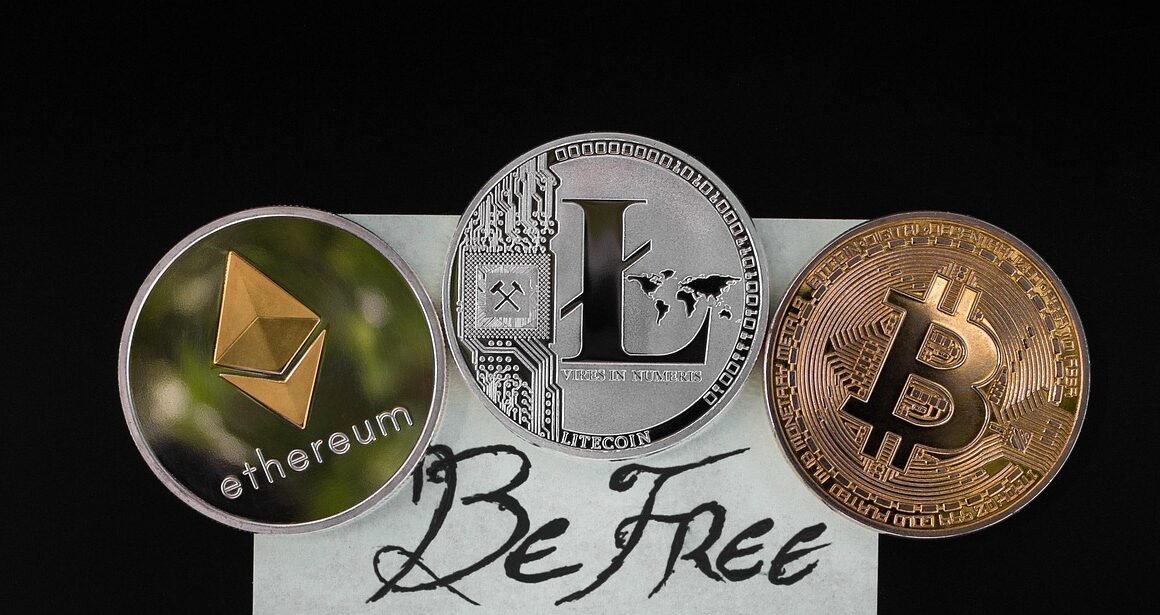Smart contracts are revolutionizing how we conduct business, manage agreements, and interact within the digital world. These self-executing contracts, written in code and stored on a blockchain, are transforming industries by automating processes, increasing transparency, and removing the need for intermediaries. This article delves into the intricacies of smart contracts, exploring their benefits, limitations, and practical applications.
What are Smart Contracts?
Defining Smart Contracts
Smart contracts are essentially digital agreements written as code. They automatically execute when predetermined conditions are met. Think of them as vending machines: you put in the correct money (the condition), and the machine dispenses the product (the execution). The key difference is that smart contracts operate on a blockchain, making them tamper-proof, transparent, and decentralized.
- They are self-executing contracts written in code.
- Conditions must be met for the contract to execute.
- Operate on a blockchain for immutability and transparency.
How Smart Contracts Work
A smart contract is created, deployed onto a blockchain, and then executed when specific criteria are fulfilled. Let’s say a contract is created for escrow services:
Key Components of a Smart Contract
Understanding the core elements allows for a clearer grasp of how smart contracts function:
- Subject: The assets or services being exchanged.
- Signatories: The parties involved in the agreement.
- Terms: The specific conditions that trigger execution.
- Digital Signature: Used to authenticate and authorize actions.
- Hashing: Used to ensure data integrity and immutability on the blockchain.
Benefits of Using Smart Contracts
Enhanced Security and Transparency
One of the most significant advantages of smart contracts is their enhanced security. Once deployed on a blockchain, they are nearly impossible to alter. The transparency of the blockchain also allows all participants to view the contract code and transaction history, fostering trust and accountability.
- Immutability: Data cannot be changed once recorded.
- Transparency: All parties can view the contract and its execution.
- Reduced Risk of Fraud: Tamper-proof nature minimizes fraudulent activities.
Automation and Efficiency
Smart contracts automate processes, eliminating the need for intermediaries and reducing manual errors. This leads to faster transaction times and lower costs. For example, in supply chain management, smart contracts can automatically trigger payments when goods reach specific checkpoints.
- Streamlined Processes: Automated execution reduces delays.
- Cost Reduction: Eliminates intermediary fees.
- Improved Efficiency: Faster transaction speeds.
Decentralization and Trust
Smart contracts operate on decentralized networks, meaning no single entity controls them. This reduces the risk of censorship and manipulation. The trust is embedded in the code itself, rather than relying on a central authority.
- No Central Authority: Decentralization reduces control by a single entity.
- Trustless Environment: Parties can interact without needing to trust each other directly.
- Increased Reliability: Distributed nature makes the system more resilient.
Use Cases of Smart Contracts
Supply Chain Management
Smart contracts can significantly improve supply chain visibility and efficiency. Tracking goods from origin to delivery, automating payments upon arrival at checkpoints, and ensuring the authenticity of products are all possible.
- Tracking and Tracing: Real-time tracking of goods and materials.
- Automated Payments: Payments released automatically upon delivery verification.
- Transparency: Increased visibility for all stakeholders.
Real Estate
Smart contracts can streamline real estate transactions by automating escrow services, title transfers, and rental agreements. This can reduce the time and costs associated with traditional real estate deals.
- Simplified Transactions: Automating the buying and selling process.
- Reduced Paperwork: Digital agreements reduce the need for physical documents.
- Faster Closings: Streamlined processes lead to quicker transaction completion.
Healthcare
Smart contracts can be used to securely manage patient data, automate insurance claims, and ensure compliance with healthcare regulations. Imagine a smart contract that automatically releases insurance payments to a doctor once a patient’s appointment is confirmed and documented on the blockchain.
- Secure Data Management: Protecting sensitive patient information.
- Automated Claims Processing: Streamlining insurance claim settlements.
- Improved Compliance: Ensuring adherence to healthcare regulations.
Voting Systems
Smart contracts offer a secure and transparent way to conduct elections. By recording votes on a blockchain, tampering and fraud can be significantly reduced, leading to more trustworthy and verifiable results. Some countries and organizations are exploring blockchain-based voting systems for improved election integrity.
- Increased Transparency: Publicly auditable voting records.
- Reduced Fraud: Tamper-proof system minimizes the risk of manipulation.
- Improved Trust: Fosters confidence in the election process.
Challenges and Limitations
Code Vulnerabilities
Smart contracts are only as secure as the code they are written in. Vulnerabilities in the code can be exploited by hackers, leading to significant financial losses. Careful auditing and testing are crucial before deploying any smart contract.
- Bugs and Errors: Code flaws can lead to unexpected behavior.
- Security Risks: Vulnerabilities can be exploited by malicious actors.
- Importance of Audits: Thorough testing and auditing are essential.
Lack of Legal Framework
The legal status of smart contracts is still evolving. There is a lack of clear regulations and legal precedents, which can create uncertainty for businesses and individuals using smart contracts. Different jurisdictions may have different interpretations of smart contract enforceability.
- Regulatory Uncertainty: Lack of clear legal guidelines.
- Enforceability Issues: Difficulty in resolving disputes.
- Need for Standardization: Development of consistent legal frameworks.
Scalability Issues
Many blockchains face scalability challenges, which can limit the performance of smart contracts. High transaction fees and slow confirmation times can make it difficult to use smart contracts for high-volume applications.
- Transaction Costs: High fees can make some applications impractical.
- Confirmation Times: Slow processing can hinder real-time applications.
- Network Congestion: High traffic can slow down the network.
Conclusion
Smart contracts represent a significant advancement in digital agreements, offering enhanced security, transparency, and efficiency. While challenges remain regarding code vulnerabilities, legal frameworks, and scalability, the potential applications of smart contracts are vast and transformative. As technology evolves and regulatory landscapes mature, smart contracts are poised to reshape industries and redefine how we interact in the digital age. Staying informed about the latest developments and best practices will be crucial for harnessing the full power of smart contracts.



